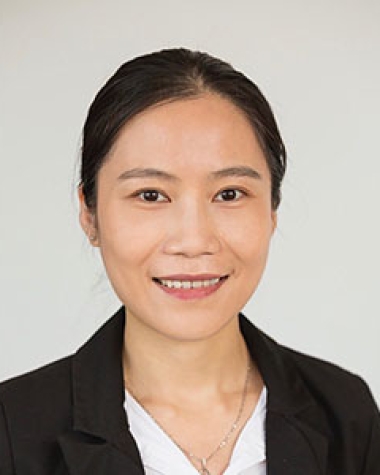Weishan Huang

Adjunct Associate Professor
Department of Microbiology & Immunology
Cornell University College of Veterinary Medicine
C5 119 Veterinary Medical Center
Ithaca, NY 14853
Profile
Research/Clinical Interests
The mammalian immune system has evolved both the effector and regulatory immune axes, and it sorts, responds to and clears invading pathogens through pro-inflammatory activity, which can cause damage to the affected tissues, and will eventually have to resolve to allow tissue remodeling and resume physiological homeostasis. The balance between pro-inflammatory and suppressive immune functions are critical for health and survival. During the initiation, progress and resolution of inflammation, the local tissue creates a changing microenvironment for immune cell development. We are interested in the immunomodulatory genetic and environmental factors and how they interact to regulate immune homeostasis.
T cells are activated through their antigen receptor (T cell receptor, TCR), and can differentiate according to their nutrient and cytokine microenvironment to become effectors and/or regulators. The interactions among TCR, cytokine and metabolic signaling pathways orchestrate the T cell immune homeostasis under static, lymphopenic and inflammatory conditions, which are the groundwork of our current research projects:
- Regulatory T cell development and function:
T cells with regulatory function play pivotal roles in controlling pro-inflammatory responses to self- and foreign antigens, as well as to pathogenic and commensal microorganisms. One of the well-known regulatory T cell populations expresses a signature molecule, the transcription factor Foxp3. Others that are Foxp3- but express high levels of the immunosuppressive cytokine IL-10 also have potent immunoregulatory function. We are investigating signals involved in the TCR, cytokine and nutrient sensing pathways in the development and function of Foxp3+ and Foxp3-IL-10+ regulatory T cells. - Memory and homeostasis of CD8+ T cells:
CD8+ T cells respond to primary pathogenic antigens, develop immune memory and play critical roles in defending against reinfections. In addition to antigen/TCR interaction, the cytokine IL-4 drives innate memory phenotype, and lymphopenia allows homeostatic proliferation along with a robust memory-like phenotype. We are interested in understanding the difference and similarity of memory T cells generated through different routes and whether we can modulate such immune memory by targeting the TCR, cytokine, and metabolic pathways and/or their interactive networking.
Education
PhD (Cornell University)
Biography/Professional Experience
Dr. Huang completed her BS in Biology and BE in Economics at Tsinghua University in China, and her PhD in Pharmacology and Postdoctoral Fellowship in Immunology at Cornell University. During her academic training, Dr. Huang investigated the signaling pathways that regulate the development of innate and adaptive immune responses. In April 2017, Dr. Huang was appointed Assistant Research Professor of Immunology at Cornell University.
Awards and Honors
- Careers in Immunology Fellowship, The American Association of Immunologists (2015)
- Abstract Awards, The American Association of Immunologists (2013, 2014, 2015)
- Hsien Wu and Daisy Yen Wu Scholarship, Cornell University (2013)
- Best Thesis Award, Tsinghua University, China (2008)
- First-grade National Scholarship, Tsinghua University, China (2005, 2006, 2007)
Publications
Selected Publications
- Huang W, Solouki S, Koylass N, Zheng SG, and August A. ITK signalling via the Ras/IRF4 pathway regulates the development and function of Tr1 cells. Nat Commun. 8, 15871. DOI: 10.1038/ncomms15871 (2017).
- Huang W, Morales JL, Gazivoda VP, and August A. Non-receptor tyrosine kinases ITK and BTK negatively regulate mast cell pro-inflammatory responses to lipopolysaccharide. J Allergy Clin Immunol. 137(4):1197-205 (2016).
- Huang W, and August A. The signaling symphony: T cell receptor tunes cytokine-mediated T cell differentiation. J Leukoc Biol. 97(3):477-485 (2015).
- Huang W, Jeong AR, Kannan AK, Huang L, and August A. IL-2-inducible T cell kinase tunes T regulatory cell development and is required for suppressive function. J Immunol. 193(5):2267-72 (2014).
- Huang W, Qi Q, Hu J, Huang F, Laufer TM, and August A. Dendritic cell-MHC class II and Itk regulate functional development of regulatory innate memory CD4+ T cells in bone marrow transplantation. J Immunol. 192(7):3435-41 (2014).
- Huang W, Huang F, Kannan AK, Hu J, and August A. ITK tunes IL-4 induced development of innate memory CD8+ T cells in a γδ and invariant NKT cell-independent manner. J Leukoc Biol. 96(1):55-63 (2014).
- Huang W, Hu J, and August A. Cutting Edge: Innate memory CD8+ T cells are distinct from homeostatic expanded CD8+ T cells and rapidly respond to primary antigenic stimuli. J Immunol. 190(6):2490-4 (2013).


